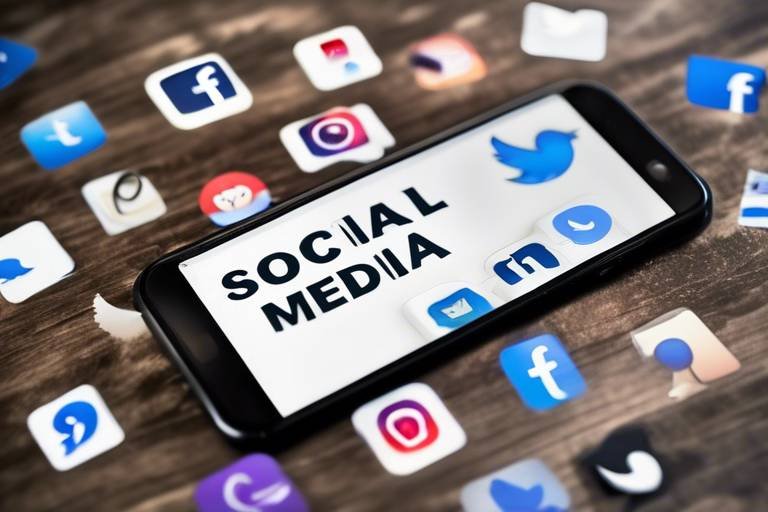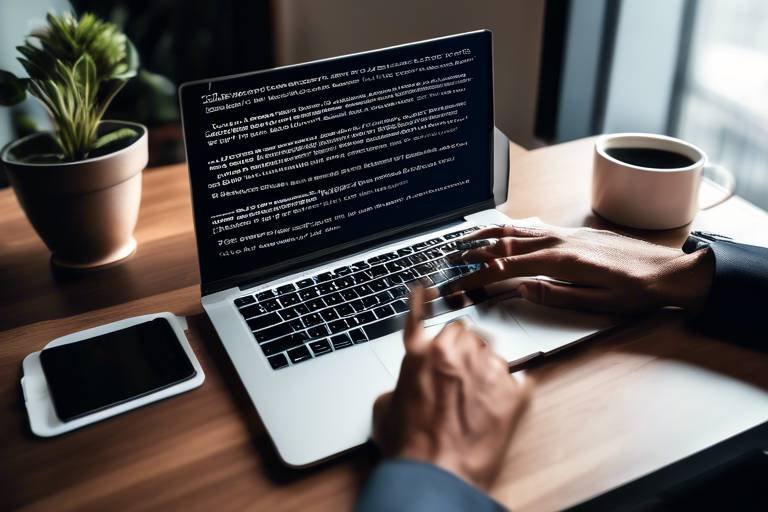Social Media Privacy - How Secure Is Your Data?
In today’s digital age, social media has become an integral part of our daily lives. From sharing photos of our latest adventures to connecting with friends and family, these platforms offer a unique way to interact with the world. However, as we dive deeper into this digital landscape, the question arises: how secure is your data? The reality is that while social media brings countless benefits, it also poses significant privacy risks that users must navigate carefully.
Understanding the intricacies of social media privacy is essential for anyone who engages with these platforms. Think of it as a double-edged sword; on one side, you have the ability to connect and share, while on the other, you face potential threats to your personal information. With each post, like, and share, you're leaving behind a trail of data that can be exploited if not handled properly. This article delves into the complexities of social media privacy, examining the risks associated with data sharing and the measures you can take to protect your personal information online.
As we explore the importance of social media privacy, it’s vital to recognize that your personal data is valuable. Companies often use this data for targeted advertising, which can feel invasive. Moreover, the consequences of neglecting privacy can be severe, ranging from unwanted solicitations to identity theft. In a world where your online presence can significantly impact your real-life experiences, safeguarding your data is more important than ever.
So, what can you do to ensure your social media experience is secure? This article will guide you through common privacy risks, such as data breaches and identity theft, and provide you with best practices to enhance your online security. By taking proactive steps, you can enjoy the benefits of social media while minimizing the risks associated with data exposure.
Understanding the significance of privacy on social media platforms is crucial. With the rapid advancement of technology, our personal lives have become intertwined with our online identities. The information we share can be easily accessed and misused by others, leading to potential harm. Protecting your personal data is essential, not just for your peace of mind, but also for your financial security and emotional well-being.
Social media privacy is not just about keeping your posts private; it encompasses a broader spectrum of your online behavior. From the photos you share to the locations you check-in, every action contributes to a digital footprint that can be traced back to you. As users become more aware of these implications, the demand for better privacy measures has grown. Companies are increasingly held accountable for safeguarding user data, but ultimately, the responsibility also lies with the individuals who use these platforms.
While social media offers a platform for self-expression and connection, it also exposes users to various privacy risks. Understanding these threats is the first step in protecting yourself. Here are some of the most prevalent risks:
- Data Breaches: These occur when unauthorized individuals gain access to sensitive information, often leading to significant consequences.
- Identity Theft: Thieves can exploit personal information shared on social media to impersonate individuals, leading to financial and emotional turmoil.
- Unauthorized Access: Your accounts can be hacked if you don’t use strong passwords or enable two-factor authentication.
Each of these risks can have serious implications, not just for your online presence but also for your everyday life. Therefore, being aware of these threats is essential for anyone who engages with social media.
Data breaches can severely impact users, leading to financial loss and emotional distress. When a breach occurs, personal information such as email addresses, passwords, and even credit card numbers can be compromised. This section delves into notable cases and their repercussions for individuals and companies alike.
Examining famous data breaches reveals patterns and vulnerabilities in social media security. High-profile incidents, such as the Facebook-Cambridge Analytica scandal, highlight how user data can be misused without consent. Such breaches not only compromise user data but also erode trust in these platforms.
The fallout from data breaches extends beyond immediate financial losses. Victims often experience long-term effects on their personal lives and online behavior. The anxiety of having your data exposed can lead to a more cautious approach to sharing information online, which can alter how you interact with friends and family.
Social media platforms can be breeding grounds for identity theft. Thieves often exploit user data, using it to create fake profiles or access financial accounts. This part explains how thieves exploit user data and offers tips for safeguarding personal information.
In this section, we provide actionable strategies for users to enhance their privacy on social media, including adjusting settings and being mindful of shared content. By implementing these practices, you can significantly reduce your risk of falling victim to privacy threats.
Most social media platforms offer privacy settings that can be customized. Navigating these settings is crucial for maximizing your security. Take the time to review your privacy options, limit who can see your posts, and adjust your profile visibility. Remember, the more control you have over your data, the safer you will be.
What you share online can have lasting consequences. Being cautious about the information and images you share on social media platforms is essential. Think before you post; ask yourself, "Would I be comfortable if this information was made public?" This simple question can help you avoid potential pitfalls.
1. How can I know if my data has been compromised?
You can use services like Have I Been Pwned to check if your email address has been involved in a data breach.
2. What should I do if I suspect identity theft?
Immediately change your passwords, contact your bank, and consider placing a fraud alert on your credit report.
3. Are privacy settings enough to protect my data?
While privacy settings are important, being mindful of what you share is equally crucial. Always think before you post.
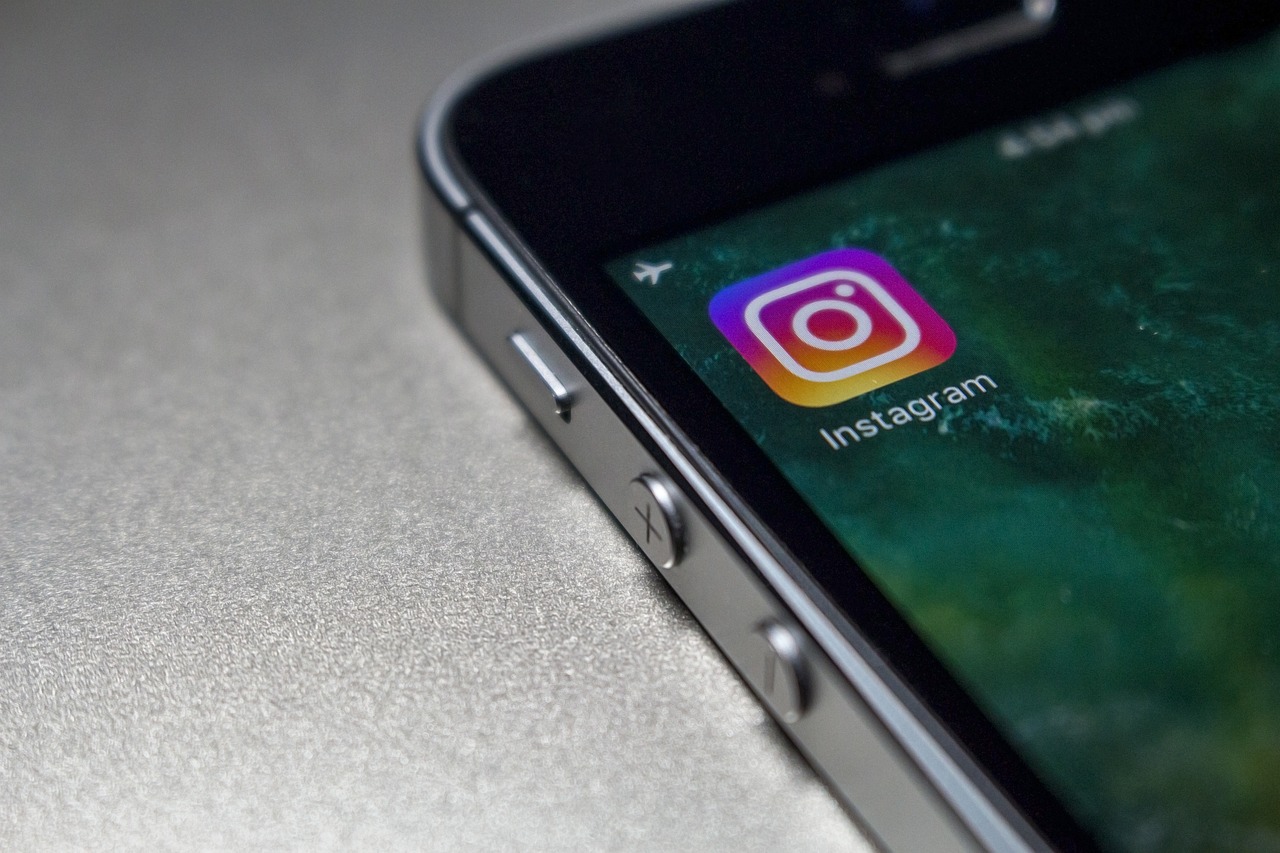
The Importance of Social Media Privacy
In an era where our lives are increasingly intertwined with the digital world, understanding the significance of privacy on social media platforms is more crucial than ever. It's not just about sharing cute cat videos or keeping up with friends; it’s about safeguarding your personal information from prying eyes. Imagine walking through a crowded street, and every passerby can see your bank account details or personal messages. Sounds unsettling, right? That's exactly what can happen if we neglect our privacy online.
Social media has become a double-edged sword. On one hand, it allows us to connect, share, and express ourselves; on the other, it can expose us to various risks. The digital footprints we leave behind can be exploited by malicious entities. As we share our thoughts, photos, and experiences, we often forget that some of this information can be used against us. For instance, oversharing personal information can lead to identity theft or unwanted attention from cybercriminals.
Moreover, the implications of compromised privacy extend beyond individual users. Businesses and organizations also face significant risks when user data is mishandled. A single data breach can tarnish a brand's reputation, leading to a loss of trust among customers. In fact, studies show that over 60% of consumers are less likely to engage with a company that has experienced a data breach. This statistic highlights the importance of maintaining robust privacy measures not just for personal security, but for the integrity of businesses as well.
It's essential to recognize that social media platforms often operate on a business model that thrives on user data. This means that your information is a commodity, and the more you share, the more valuable you become to advertisers and marketers. As users, we need to be proactive in understanding how our data is used and take steps to protect it. Here are a few reasons why social media privacy should be a top priority:
- Protection from Identity Theft: Personal information can be used to impersonate you, leading to financial and emotional distress.
- Control Over Your Digital Footprint: Managing what you share helps you maintain a positive online presence.
- Prevention of Unwanted Contact: Adjusting privacy settings can help keep stalkers and unwanted contacts at bay.
In summary, the importance of social media privacy cannot be overstated. By taking the necessary steps to protect your data, you can enjoy the benefits of social media without falling victim to its potential pitfalls. Remember, your personal information is valuable—treat it as such!
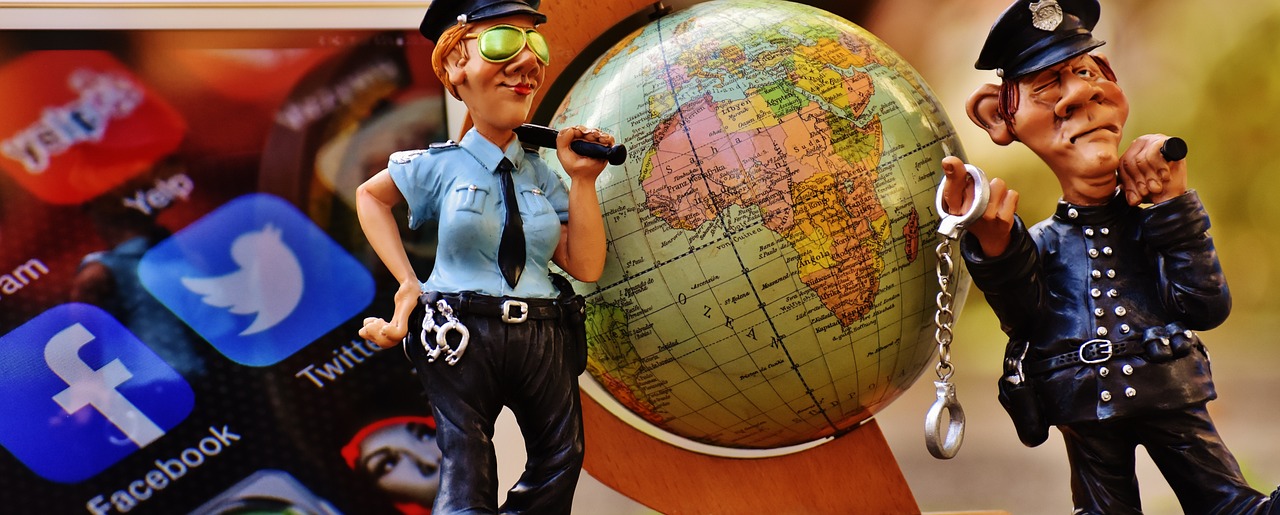
Common Privacy Risks on Social Media
In today's hyper-connected world, social media platforms are a double-edged sword. While they offer incredible opportunities for connection and expression, they also harbor significant privacy risks that can leave users vulnerable. Understanding these risks is the first step in safeguarding personal information. From data breaches to identity theft, the threats are real and ever-present.
One of the most alarming risks is data breaches. These incidents occur when unauthorized individuals gain access to sensitive information stored on social media servers. Imagine waking up to find that your personal data, including your name, email address, and even financial information, has been exposed to cybercriminals. This isn't just a nightmare scenario; it's a reality for many users. Data breaches can lead to financial loss and emotional distress as individuals grapple with the fallout.
Another prevalent threat is identity theft. Social media platforms are gold mines for thieves looking to steal personal information. It’s astonishing how easily someone can piece together enough information from your posts and interactions to impersonate you. For instance, if you frequently share your location, birthday, and other personal details, you might as well be handing a thief the keys to your identity. This can escalate into a full-blown crisis, affecting your credit score and personal relationships.
Moreover, the risk of unauthorized access to personal information is ever-growing. With the rise of sophisticated hacking techniques, it’s easier than ever for malicious actors to infiltrate accounts. Think about it: how many times have you reused passwords across different platforms? This practice can be a serious vulnerability, as hackers can exploit one breach to access multiple accounts. Once they gain entry, they can manipulate your account, post inappropriate content, or even steal your contacts.
To illustrate the severity of these risks, consider the following table that outlines some of the most common privacy threats on social media:
| Privacy Risk | Description | Potential Consequences |
|---|---|---|
| Data Breaches | Unauthorized access to user data stored on social media platforms. | Financial loss, emotional distress, loss of trust in platforms. |
| Identity Theft | Thieves using personal information to impersonate individuals. | Credit fraud, legal issues, emotional trauma. |
| Unauthorized Access | Hackers infiltrating accounts to steal or manipulate information. | Loss of privacy, damage to reputation, potential legal consequences. |
As we navigate the complexities of social media, it’s crucial to remain vigilant and informed about these risks. Being aware of how your data can be exploited is the first step in taking control of your online presence. So, what can you do to protect yourself? Stay tuned as we delve deeper into best practices for safeguarding your privacy in the digital age.
Q: What should I do if I suspect my account has been hacked?
A: Immediately change your password, enable two-factor authentication, and review your account activity for any unauthorized actions.
Q: How can I tell if a social media platform has experienced a data breach?
A: Look for official announcements from the platform, check news reports, and monitor your accounts for any suspicious activity.
Q: Is it safe to share personal information on social media?
A: It's best to limit the amount of personal information you share. Be cautious and think about the potential consequences before posting.
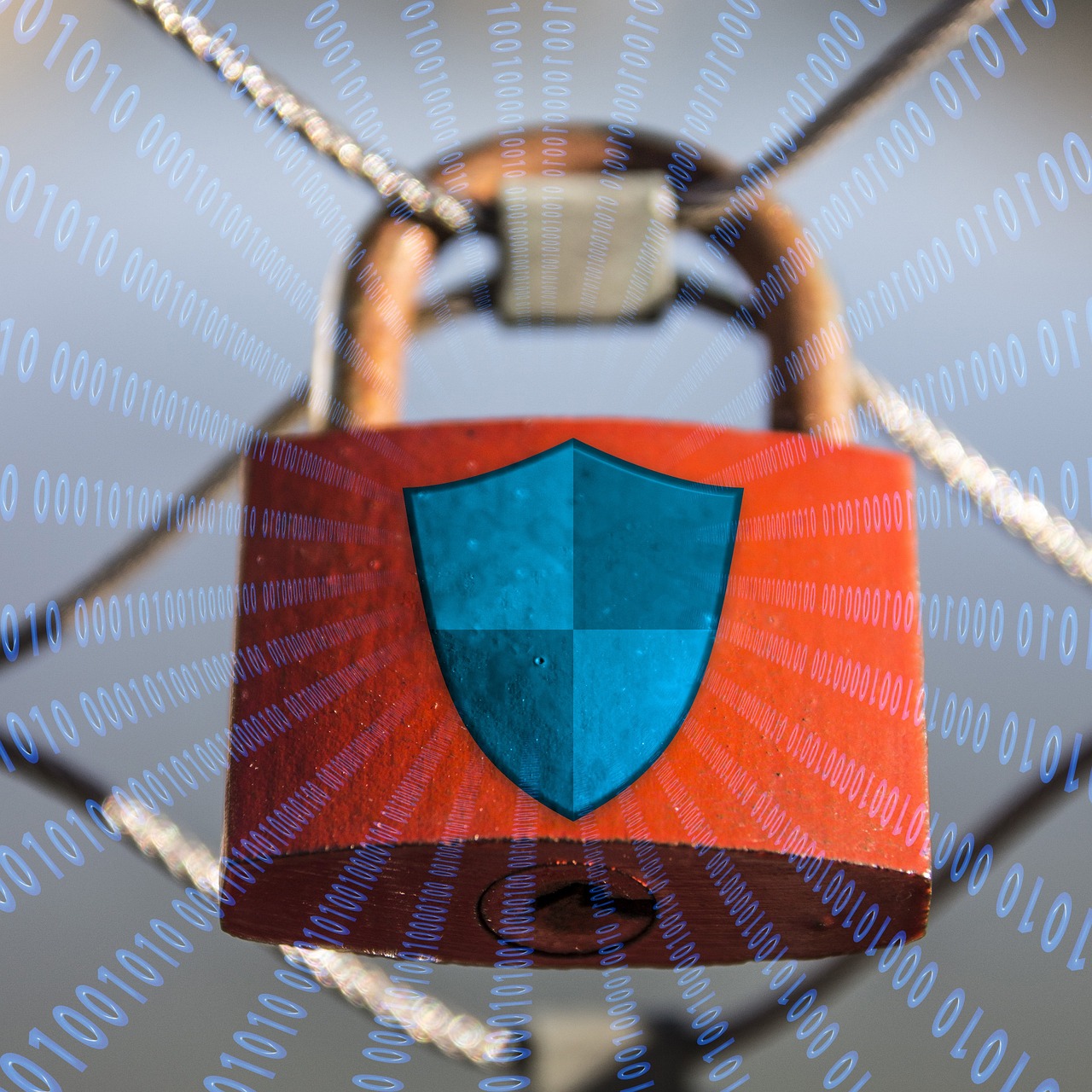
Data Breaches and Their Consequences
Data breaches have become a common occurrence in our hyper-connected world, and the implications for users can be both severe and far-reaching. Imagine waking up one morning to find that your personal information has been compromised—bank details, social security numbers, and even private messages. The emotional toll of such an incident can be overwhelming, leading to feelings of vulnerability and distrust. But what exactly happens when a data breach occurs, and how does it affect you?
When a data breach happens, hackers gain unauthorized access to sensitive information stored by a company or platform. This can include everything from usernames and passwords to credit card information and personal identification details. The consequences of such breaches can manifest in various ways:
- Financial Loss: Victims may face unauthorized transactions on their accounts, leading to significant financial repercussions. In some cases, individuals have reported losing thousands of dollars due to identity theft.
- Emotional Distress: The anxiety of knowing that your personal information is in the hands of cybercriminals can lead to long-term emotional stress. Many victims experience a sense of violation and fear of future breaches.
- Reputation Damage: For businesses, data breaches can severely damage their reputation. Customers may lose trust in a brand that fails to protect their data, resulting in lost sales and a tarnished public image.
Notable data breaches serve as stark reminders of the vulnerabilities that exist in our digital lives. For instance, the infamous Equifax breach in 2017 exposed the personal information of approximately 147 million people, leading to widespread identity theft and financial fraud. Similarly, the Facebook-Cambridge Analytica scandal highlighted how user data can be exploited for political gain, raising questions about user consent and data ownership.
Beyond immediate financial losses, the fallout from data breaches can have long-term effects on users' personal lives. Victims often find themselves in a constant battle to restore their identities, which can involve tedious processes such as freezing credit, disputing fraudulent charges, and monitoring accounts for suspicious activity. This ongoing vigilance can be exhausting and may even lead to a reluctance to engage with online platforms altogether.
In conclusion, the consequences of data breaches extend far beyond the initial incident. They can disrupt lives, erode trust in digital platforms, and leave lasting scars on both individuals and businesses. As we navigate this digital landscape, it’s essential to remain vigilant and proactive in protecting our personal information. Understanding the risks and taking steps to safeguard ourselves can make a significant difference in mitigating the impact of these breaches.

High-Profile Data Breaches
When we think about data breaches, our minds often drift to those high-profile cases that shook the digital world to its core. These incidents are not just numbers and headlines; they represent a serious threat to our privacy and security. Take, for instance, the infamous breach of Facebook in 2019, where the personal data of millions was exposed. This wasn't just a technical glitch; it was a wake-up call for users everywhere. Suddenly, the question wasn't just "Is my data safe?" but "How safe is my data?"
High-profile data breaches have a way of highlighting the vulnerabilities in the systems we trust. Companies that we share our lives with can sometimes fall short in protecting our information. Consider the case of Equifax, where sensitive information of approximately 147 million people was compromised. This breach, which occurred in 2017, revealed how even major corporations can become weak links in the chain of data security. The aftermath left many wondering about the reliability of such platforms, and the fallout was not just financial; it affected countless lives.
Here's a quick look at some notable high-profile data breaches that have occurred over the years:
| Company | Year | Number of Records Affected | Impact |
|---|---|---|---|
| 2019 | 540 million | Exposed user data, including comments and likes | |
| Equifax | 2017 | 147 million | Compromised sensitive personal information |
| Yahoo | 2013-2014 | 3 billion | Stolen account information, including security questions |
| Marriott | 2018 | 500 million | Compromised passport numbers and credit card information |
The implications of these breaches extend far beyond the immediate loss of data. They can lead to a significant erosion of trust between users and the platforms they engage with. When a company fails to protect its users, it raises a critical question: How can we trust them with our most sensitive information? This loss of trust can result in users abandoning platforms altogether, seeking safer havens for their social interactions.
Moreover, the emotional toll of these breaches can be overwhelming. Imagine receiving a notification that your personal information has been compromised. It’s like discovering a stranger has invaded your home. The anxiety and fear of identity theft can linger long after the breach has been reported. Users often find themselves constantly on edge, monitoring their accounts and credit reports, fearing the worst.
In conclusion, high-profile data breaches serve as stark reminders of the vulnerabilities that exist in our digital lives. They compel us to be more vigilant about our online presence and to question the security measures that companies have in place. As we navigate this complex digital landscape, it’s essential to stay informed and proactive in protecting our personal information.
- What should I do if my data has been compromised? If you suspect your data has been compromised, change your passwords immediately and monitor your accounts for any suspicious activity.
- How can I protect myself from identity theft? Use strong, unique passwords for each of your accounts, enable two-factor authentication, and be cautious about sharing personal information online.
- Are all social media platforms equally secure? No, the level of security varies by platform. It's crucial to research and understand the privacy policies and security measures of each platform you use.
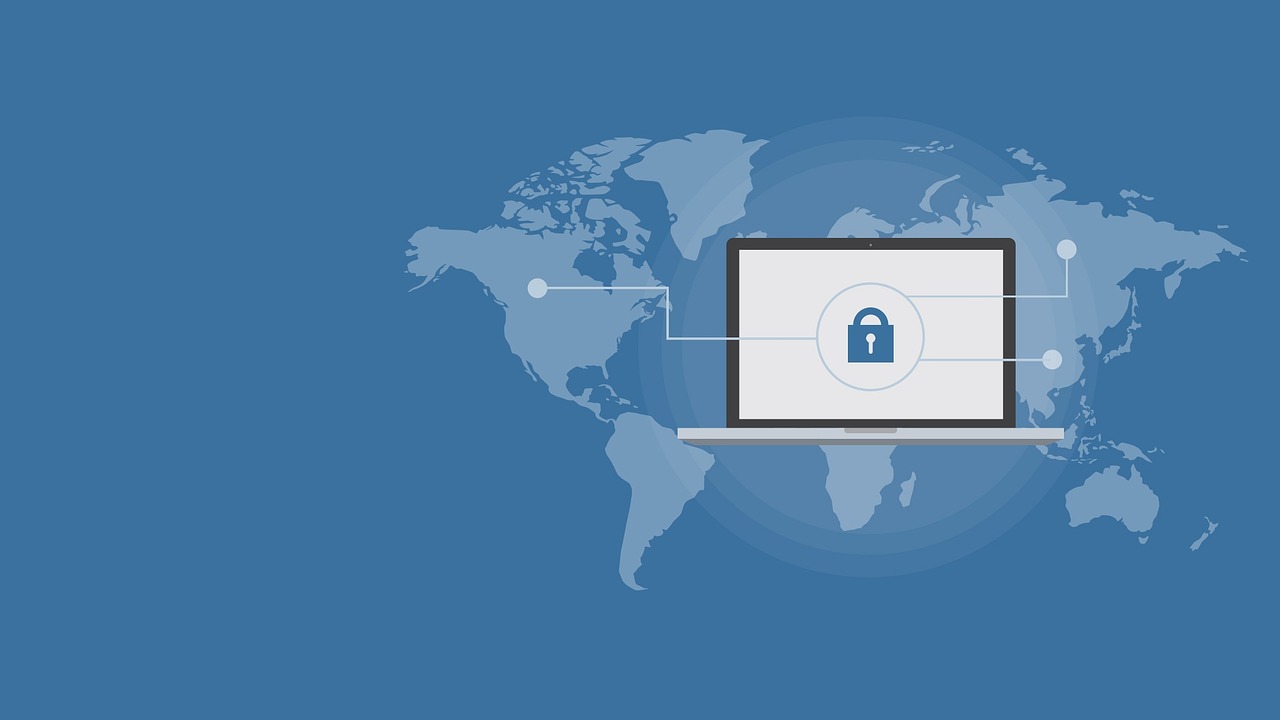
Impact on Users
When a data breach occurs, the repercussions for users can be devastating. Imagine waking up one day to find that your personal information—your name, address, and financial details—have been compromised. It’s not just about the immediate shock; it’s about the long-term effects that can ripple through your life. The emotional distress that follows can be akin to the aftermath of a car accident, where you’re left shaken, unsure, and constantly looking over your shoulder.
One of the most significant impacts of a data breach is the potential for identity theft. Thieves can use your stolen information to open credit accounts in your name, leaving you with the burden of debt that you never incurred. This not only affects your financial standing but can also tarnish your credit score, making it difficult to secure loans or even rent an apartment. The process of clearing your name can be long and arduous, often taking months or even years to resolve.
Moreover, the emotional toll can be profound. Users often experience feelings of vulnerability and paranoia, constantly worrying about their privacy and safety. This can lead to a significant change in online behavior. For instance, individuals may become hesitant to share personal experiences or engage in social interactions on platforms they once enjoyed. The fear of being targeted again can overshadow the social benefits that these platforms offer.
Additionally, the fallout from data breaches can extend to relationships. Friends and family might unknowingly become entangled in the aftermath, especially if shared accounts or devices are involved. The trust that once existed can be shaken, leading to a ripple effect that impacts not just the individual but their social circles as well. In some cases, users may even choose to withdraw from social media altogether, feeling that the risks outweigh the rewards.
In summary, the impact of data breaches on users is multifaceted, affecting financial stability, emotional well-being, online behavior, and personal relationships. It’s a serious issue that underscores the importance of being vigilant about privacy on social media platforms. As we navigate this digital landscape, it’s crucial to remain aware of the potential dangers and take proactive steps to safeguard our personal information.
- What should I do if my data is compromised?
If you suspect that your data has been compromised, immediately change your passwords and enable two-factor authentication. Monitor your financial accounts closely for any unauthorized transactions. - How can I tell if my information has been leaked?
There are several online tools and services that can help you check if your email or personal data has been involved in a breach. Additionally, be vigilant for any suspicious activity on your accounts. - Are all social media platforms equally secure?
Not all platforms prioritize security in the same way. It’s essential to research and understand the privacy policies and security measures of each platform you use.

Identity Theft and Social Media
In today’s hyper-connected world, social media platforms are not just a place to share moments; they have become a treasure trove of personal information for identity thieves. Imagine walking into a crowded room, and every detail about your life is on display for anyone to see. That’s essentially what happens when we overshare online. Identity theft on social media is a growing concern, as thieves exploit the very platforms designed for connection.
So, how do these thieves operate? They often start by gathering information from your profile, including your full name, birthday, and even your location. This might seem harmless, but when combined with a few other details, they can easily impersonate you. For instance, if you post about your recent vacation, a thief might know you’re not home and could take advantage of that situation. It’s like giving them the keys to your life without even realizing it!
Here are some common tactics identity thieves use on social media:
- Phishing Scams: Thieves often create fake profiles or pages that mimic legitimate organizations to trick users into providing sensitive information.
- Social Engineering: By observing your posts and interactions, they can piece together enough information to answer security questions and gain access to your accounts.
- Malware Links: Sharing or clicking on suspicious links can lead to malware installations, giving thieves access to your personal data.
It's crucial to be aware of these tactics and take proactive steps to protect yourself. Here are a few tips to safeguard your personal information:
- Always use strong, unique passwords for each of your social media accounts. Consider using a password manager to keep track of them.
- Enable two-factor authentication whenever possible. This adds an extra layer of security that makes it harder for thieves to access your accounts.
- Be cautious about friend requests from unknown individuals. If you don’t know them, it’s better to ignore the request.
- Regularly review your privacy settings to ensure you’re only sharing information with trusted friends and family.
In conclusion, while social media can be a fantastic way to connect and share, it’s essential to remain vigilant about your privacy. By understanding the risks and taking the necessary precautions, you can enjoy the benefits of social media without falling victim to identity theft. Remember, in the digital world, your data is your most valuable asset—treat it with the care it deserves!
Q: What should I do if I think I've been a victim of identity theft?
A: If you suspect identity theft, immediately change your passwords, report the incident to your bank and credit card companies, and consider placing a fraud alert on your credit report.
Q: How can I tell if my social media account has been hacked?
A: Look for unusual activity, such as messages you didn’t send, posts you didn’t make, or changes to your profile. If you notice any of these, secure your account immediately.
Q: Is it safe to share my location on social media?
A: Sharing your location can be risky, as it may inform thieves when you are not at home. It's best to avoid posting real-time location updates.
Q: Can I recover my identity if it's stolen?
A: Yes, recovery is possible. It typically involves reporting the theft, disputing fraudulent charges, and possibly working with identity theft protection services.
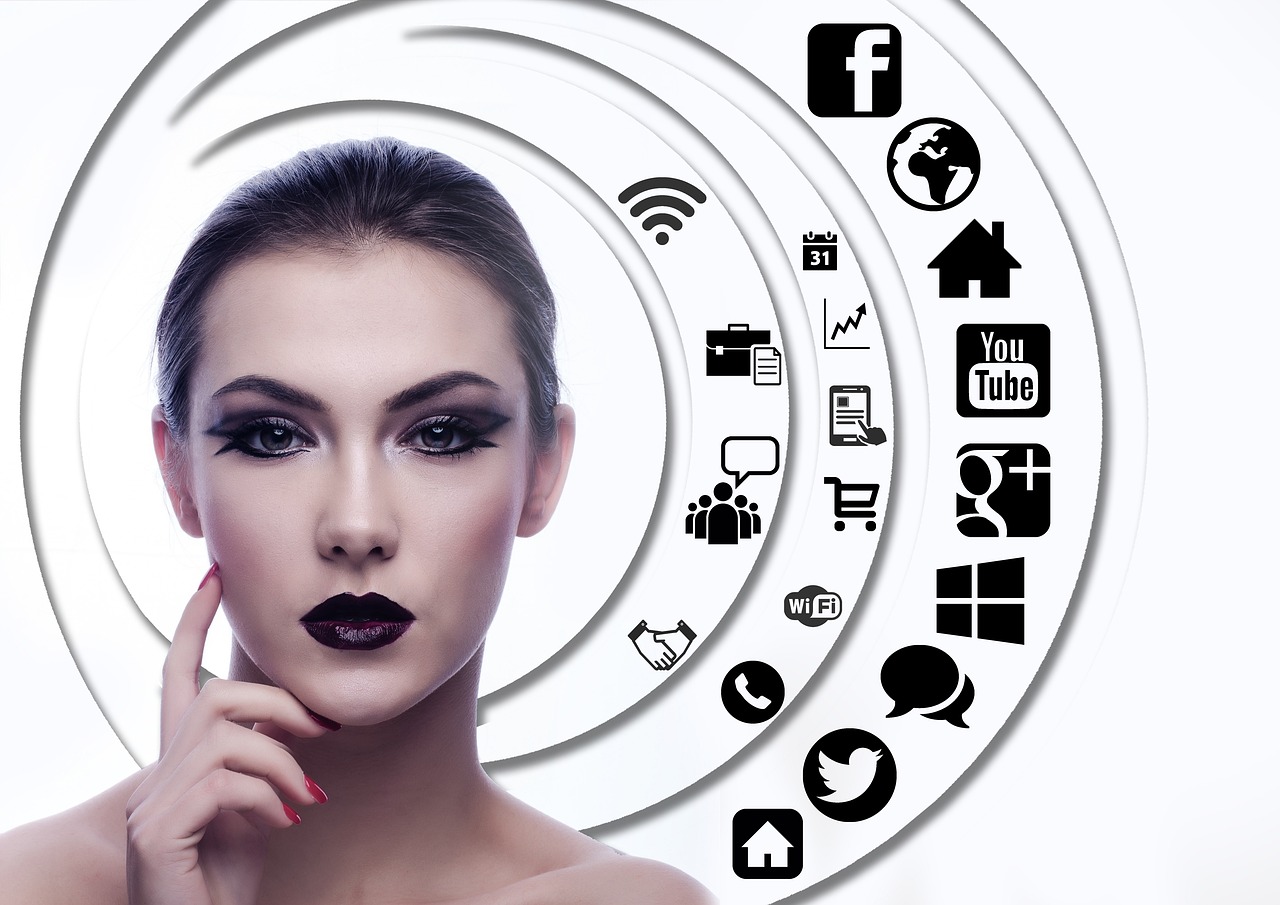
Best Practices for Protecting Your Privacy
In today's digital age, safeguarding your privacy on social media is not just a suggestion—it's a necessity. With the vast amount of personal information shared online, it’s crucial to take proactive steps to protect yourself. So, how do you navigate this digital minefield? Here are some best practices that can help you secure your personal data and maintain your privacy while still enjoying the benefits of social media.
First off, adjusting your privacy settings is one of the most effective ways to enhance your security. Most social media platforms come equipped with a variety of privacy options that allow you to control who sees your content. For instance, you can limit your audience to friends only or even customize it to exclude certain individuals. It’s like having a digital fortress where you control who gets to peek inside. Take a moment to dive into the settings of your preferred platforms; you might be surprised by how many options are available!
Moreover, being mindful of the content you share is equally important. Every post, photo, or comment you make can potentially be seen by more people than you intend. It’s easy to forget that once something is online, it’s challenging to take it back. Think of your social media profile as a window into your life—would you leave your curtains wide open for everyone to see? Here are some tips to keep in mind:
- Always consider the information you are sharing. Is it something you would want strangers to know?
- Avoid sharing sensitive information like your home address, phone number, or financial details.
- Be cautious about tagging your location in posts, as it can reveal your whereabouts to anyone monitoring your activity.
Another essential aspect of protecting your privacy is to regularly review your friend list and connections. Just like in real life, not everyone you meet online is a friend. It’s wise to periodically assess who you are connected with and remove any individuals you no longer wish to share your life with. Maintaining a tight-knit circle online can significantly reduce your exposure to potential threats.
Furthermore, consider using two-factor authentication (2FA) wherever possible. This added layer of security requires not just your password but also a second verification step, such as a code sent to your phone. It’s like locking your front door and then adding a deadbolt—extra security never hurts! By enabling 2FA, you make it much more challenging for unauthorized users to gain access to your accounts.
Lastly, stay informed about the latest privacy policies and updates from the platforms you use. Social media companies often change their privacy terms, and being aware of these changes can help you make informed decisions about your data. Think of it as reading the fine print before signing a contract; it’s essential to know what you’re agreeing to!
In summary, protecting your privacy on social media may require some effort, but the peace of mind it brings is worth it. By adjusting your privacy settings, being cautious about what you share, regularly reviewing your connections, enabling two-factor authentication, and staying informed, you can navigate the social media landscape with confidence. Remember, your personal information is valuable—treat it with the respect it deserves!
Here are some common questions regarding social media privacy:
- What should I do if I think my account has been hacked?
Immediately change your password and enable two-factor authentication. Report the incident to the platform. - Can I completely delete my data from social media?
While you can delete your account, some data may still be retained by the platform. Check their privacy policy for specifics. - How often should I change my passwords?
It’s a good practice to change your passwords every 3-6 months and use unique passwords for different accounts.
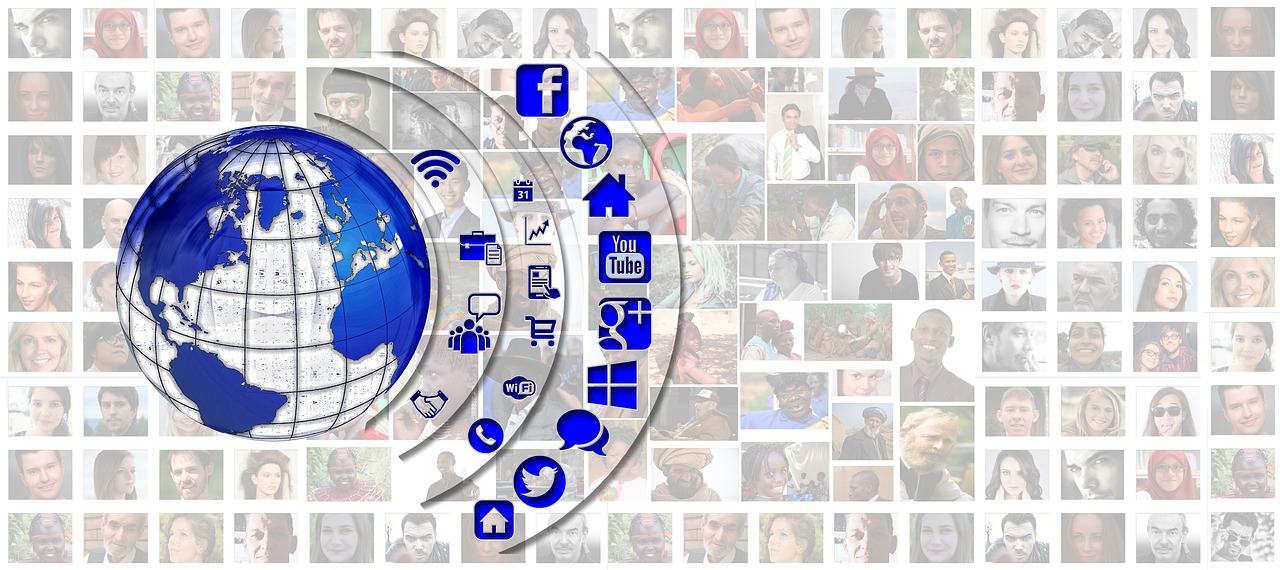
Adjusting Privacy Settings
In the age of constant connectivity, understanding how to adjust your privacy settings on social media is not just a good idea—it's essential. With every like, share, and post, we inadvertently open the door to our personal lives. But fear not! Most social media platforms come equipped with a variety of privacy settings designed to help you safeguard your information. So, how do you navigate this digital maze and ensure your data remains your own? Let’s dive in!
First off, it’s important to know that privacy settings are not one-size-fits-all. Each platform, whether it’s Facebook, Instagram, Twitter, or others, has its own unique features and options. For instance, Facebook allows you to control who sees your posts, while Instagram lets you make your account private, limiting access to only those you approve. Here’s a quick rundown of what you should look out for:
- Profile Visibility: Check who can view your profile. Adjust settings to limit access to friends only or even specific groups.
- Post Sharing: Before hitting that 'post' button, ensure you know who can see your content. This can usually be adjusted on a per-post basis.
- Tagging Options: Control who can tag you in posts or photos. This not only protects your image but also your privacy.
- Location Sharing: Be cautious about sharing your location. Disable location services for social media apps when not necessary.
Now, you might be wondering, “How do I even access these settings?” Typically, you can find privacy settings in the account settings or security section of the app. For example, on Facebook, you can click on the small arrow in the top right corner, select 'Settings & Privacy', and then 'Settings'. From there, look for the 'Privacy' tab on the left sidebar. It’s like finding a hidden treasure chest filled with tools to protect your digital life!
Once you’ve located your privacy settings, take your time to explore each option. Read through the descriptions, and don’t hesitate to adjust them according to your comfort level. Remember, it’s about creating a safe space for yourself online. You wouldn’t leave your front door wide open, would you? The same principle applies to your social media accounts.
Moreover, it’s crucial to revisit these settings periodically. Social media platforms often update their privacy policies and features, which can lead to changes in your default settings. What might have been private yesterday could be public today. So, make it a habit to check your privacy settings every few months. Think of it as a digital spring cleaning!
Lastly, keep in mind that while adjusting your privacy settings is a significant step, it’s not the only measure you should take. Being aware of what you share is equally important. The more you understand the tools at your disposal, the better equipped you’ll be to navigate the complex world of social media without sacrificing your privacy.
Q1: How often should I update my privacy settings?
A1: It’s advisable to check your privacy settings every few months or whenever a social media platform updates its features.
Q2: Can I make my posts visible to specific people?
A2: Yes! Most platforms allow you to customize who can see your posts, whether it’s friends, friends of friends, or specific individuals.
Q3: What should I do if I suspect my account has been hacked?
A3: Immediately change your password, enable two-factor authentication, and review your privacy settings to ensure your information remains secure.
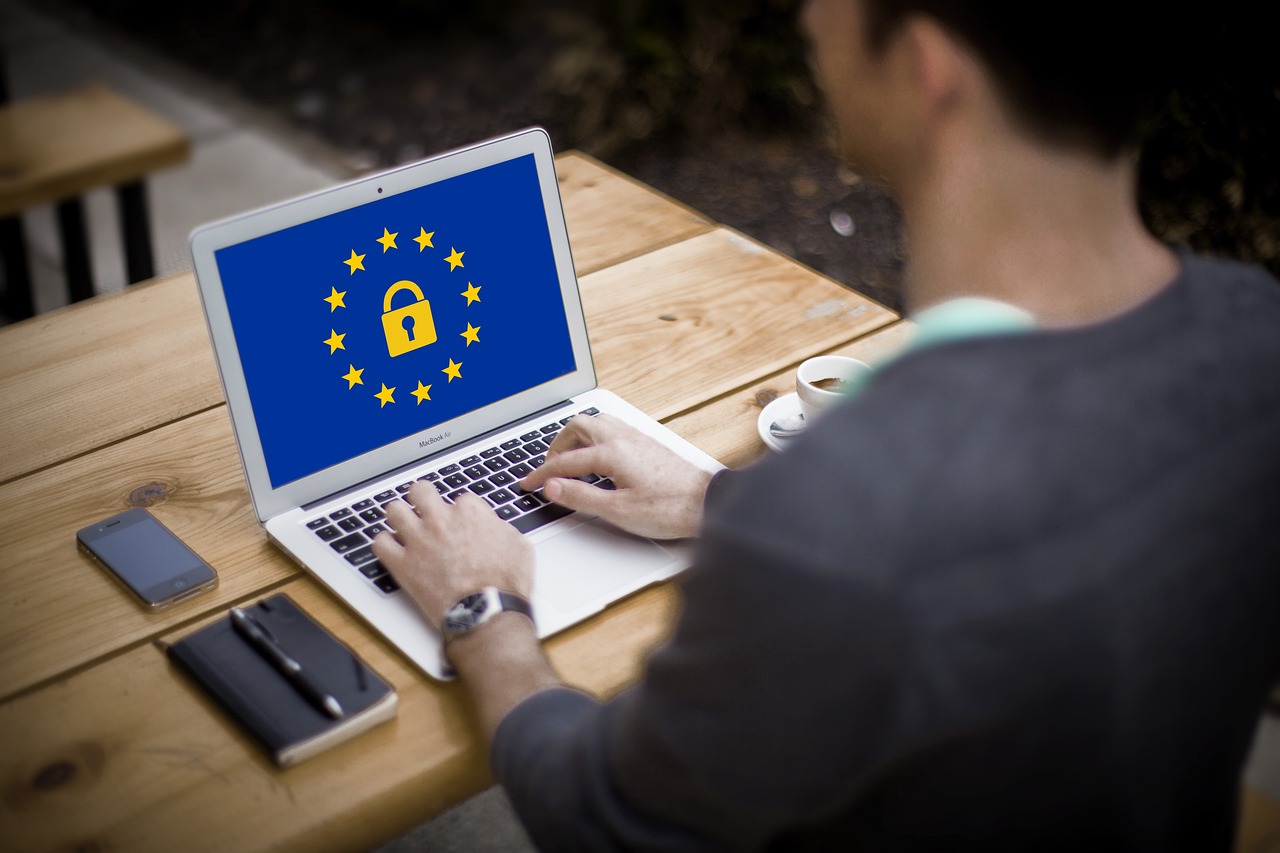
Being Mindful of Shared Content
In the digital age, every time you hit that post button, you’re sending a message into the vast online universe. But have you ever stopped to think about the impact of what you share? Being mindful of shared content is not just about avoiding embarrassing moments; it’s about protecting your privacy and ensuring that your personal information doesn’t fall into the wrong hands. Think of each post as a breadcrumb trail leading back to you—each one can reveal something about your life, habits, and even your location!
Consider this: when you share a seemingly innocuous photo of your weekend getaway, you might be revealing your home is empty. Thieves are savvy; they know how to piece together information from social media to create a picture of your life. This is why it’s crucial to pause and reflect before sharing. Ask yourself questions like, “Is this information necessary?” or “Could this be misinterpreted?”
Moreover, not all content is created equal. Some posts can be harmless, while others can have serious repercussions. For instance, sharing your political views or personal struggles can invite unwanted attention or even harassment. It’s essential to weigh the pros and cons of each post. Here are a few guidelines to keep in mind:
- Think Before You Share: Always consider how your post might be perceived by others.
- Limit Personal Information: Avoid sharing sensitive information like your address, phone number, or financial details.
- Check Your Audience: Make sure your privacy settings are adjusted so that only trusted friends can see your posts.
Remember, once something is online, it can be challenging to take it back. Even if you delete a post, there’s a chance someone has already seen or saved it. This is especially true for photos or videos, which can be easily shared or downloaded. So, before you share that cute selfie or a rant about your boss, take a moment to think about the long-term implications. Your online presence is a reflection of you; make sure it’s one you’re proud of!
Q1: What types of content should I avoid sharing on social media?
A1: It's best to avoid sharing sensitive personal information, political opinions, or anything that could be misinterpreted or lead to unwanted attention.
Q2: How can I adjust my privacy settings on social media?
A2: Most platforms have privacy settings that allow you to control who sees your posts. Check the settings section of your profile to customize your audience.
Q3: Can I ever fully delete something I posted online?
A3: While you can delete your posts, there’s no guarantee that someone hasn’t already taken a screenshot or shared it. Always think before you post!
Frequently Asked Questions
- What are the main privacy risks associated with social media?
Social media platforms come with a variety of privacy risks, including data breaches, identity theft, and unauthorized access to personal information. These risks can expose users to financial loss, emotional distress, and a breach of their personal space.
- How can I protect my personal information on social media?
To protect your personal information, start by adjusting your privacy settings on each platform. Be mindful of what you share and with whom. Avoid posting sensitive information and consider using privacy-focused tools or features that limit who can see your content.
- What should I do if my account is hacked?
If your account is hacked, immediately change your password and enable two-factor authentication if available. Notify the platform of the breach, and check for any unauthorized activity. It’s also wise to inform your contacts to be cautious of any suspicious messages coming from your account.
- Can social media companies sell my data?
Yes, many social media companies can sell or share your data with third parties, often for advertising purposes. Always review the privacy policy of the platform to understand how your data is used and consider adjusting your settings to limit data sharing.
- What are the consequences of a data breach?
The consequences of a data breach can be severe, including financial loss, identity theft, and long-term emotional distress. Users may find their personal information exposed, leading to a loss of trust in the platform and potential harm to their reputation.
- How can I recognize a phishing attempt on social media?
Phishing attempts often come in the form of suspicious messages or links that seem too good to be true. Look for poor grammar, generic greetings, and requests for personal information. Always verify the sender before clicking on links or providing any details.
- Are there any privacy tools I can use?
Yes! There are several privacy tools available, such as VPNs, browser extensions that block trackers, and privacy-focused search engines. These tools can help safeguard your online activity and enhance your privacy while using social media platforms.
- How often should I review my privacy settings?
It's a good idea to review your privacy settings regularly, at least every few months or after any significant updates to the platform. This ensures that your information remains secure and that you're aware of any new features or settings that could enhance your privacy.








